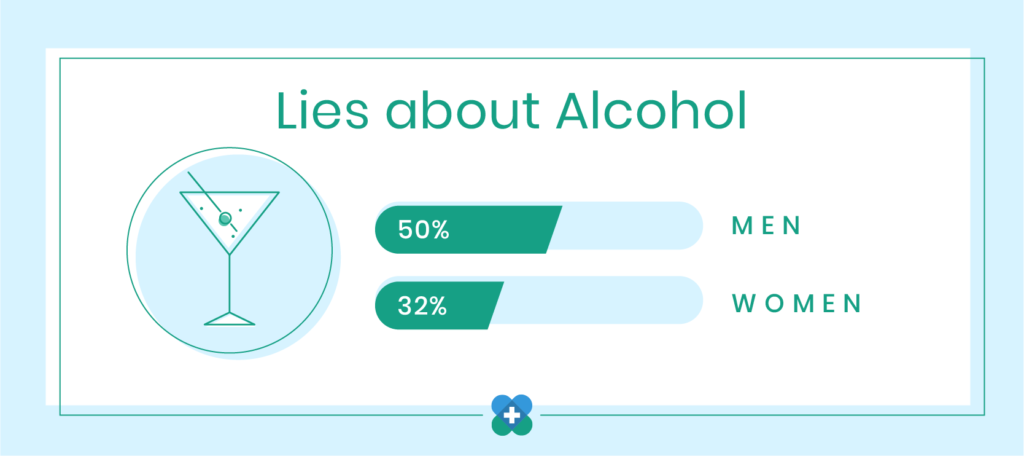Call Today! 888-234-8376
We Asked 500 People, “Do You Lie to Your Doctor?”
Our findings, correlations, and fun facts.
Doctor-patient confidentiality laws: we all know they exist, and they carry steep penalties if broken. But even with confidentiality laws protecting them, many patients still feel the need to keep things from their doctors—or lie to them outright.

We surveyed 500 people to find out if they’ve ever lied to their doctors, and 23% said they have. Here are some of the white lies, stretched truths, and complete fictions they admit to telling:
- 46% lied about smoking habits.
- 43% lied about exercise (or lack thereof).
- 38% lied about drinking habits.
- 29% lied about their sexual partners.
(You may notice these don’t add up to 100%. That’s because some participants lied about multiple topics!)
Around 14% of Americans smoke, according to the CDC.1 We found it interesting that nearly that same percentage (a total of 10% of the 500 we surveyed) admitted to lying to their doctors about smoking.
Additionally, more men lied to doctors about alcohol consumption than women (50% men vs. 32% women). Interestingly, men are nearly twice as likely as women to binge drink (23% vs. 13%, respectively), according to the CDC.2 On the flip side, women were more likely to lie about sexual partners (33% women vs. 21% men).


Gender differences and lying patterns
But why this gender difference? We asked a doctor for his two cents on the matter:
Oh, but there’s more. We broke down our data by age group:
- Patients 35 and older are more likely to lie about their exercise habits.
- Patients 35 and younger are more likely to lie about smoking.
- The age group most likely to lie about sexual partners are those 35–44. Perhaps “dirty thirties” are real after all?
We’ve established that some people embellish with—or lie to—their MD. But why? For three out of four people, it’s to avoid embarrassment. But a quarter do for other reasons:
- 31% said they lie to avoid discrimination.
- 22% said they lie because they don’t think their doctor will take them seriously if they tell the truth.
- One man lied about his alcohol consumption to avoid a lecture from his doc.
- Forget the physician: One young woman lied because her mother was in the room and she didn’t want her to know about her sexual activity.

Of those that admitted to fibbing to their physician, the group that lied to avoid discrimination was overwhelmingly female (80% female, 20% male).
In general, most people (77% of those we surveyed) are honest with their doctor. But that honesty isn’t always comfortable. In fact, almost half of our survey respondents said they feel uncomfortable talking to their doctors about their sexual activities. One person even said she’s uncomfortable talking with her doctor about almost everything because she just doesn’t trust doctors. On the other hand, 34% said they were comfortable talking with their doctor about anything.
Dr. Madsen prescribed some wisdom to anyone struggling to be forthcoming with their doctor:
How about you—do you lie to your doctor? Are you truthful, but still feel uncomfortable telling all? Or have you stretched the truth with your physician because your mom was in the room—or maybe your spouse? You can tell us the truth—in the comments.


